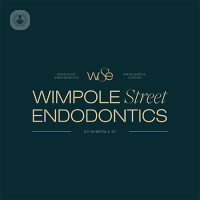What is tooth decay?
Tooth decay is a condition that affects the tissues of the teeth, which are destroyed by the acids of bacterial plaque, causing cavities. The affected teeth are usually punctured gradually, causing pain if the infection reaches the nerve. Children and young people are usually affected, but they can appear at any age. Normally they are classified into several types:
- Crown cavities: They affect the upper part of the tooth. They are the most frequent, especially in children, and the easiest to identify.
- Interproximal or interdental cavities: These are formed between the teeth and are not easy to stop.
- Root cavities: These are formed in the gum line.
- Recurrent or secondary cavities: They appear around the edges of the crowns, covers or fillings that have been placed previously to treat cavities.

What are the symptoms of tooth decay?
At first, tooth decay does not cause any symptoms, but when symptoms do occur they can include:
- toothache or painful sensation, especially when drinking cold or hot beverages or sweet food;
- visible holes in the teeth.
What causes tooth decay?
Sugars and starches combined with poor dental hygiene are the primary causes of tooth decay.
Can tooth decay be prevented?
The most important thing is to maintain good oral hygiene, by:
- brushing your teeth at least twice a day;
- flossing at least once a day;
- undergoing a professional cleaning every six months;
- making sure to clean your teeth with topical fluoride (toothpaste or mouthwash);
- limiting sugar intake to meal times, and;
- avoiding sugar intake from food and drink between meals.
It's recommended to eat sticky and chewy foods as part of a meal and not as a snack and, after eating these foods, rinsing your mouth with water. It is also advisable to avoid eating between meals, drinking sugary drinks or eating candies. On the other hand, dental sealants can prevent some cavities, as they prevent the accumulation of plaque in the deep grooves of the mouth.
How are cavities treated?
Cavities are treated in three ways:
- fillings: this consists of removing the decayed dental material and replacing it with a material such as porcelain, silver, gold or composite resin.
- crowns: these replace a part of the decayed tooth that has been removed to retain its original shape.
- root canal: this is recommended if the nerve of the tooth dies. It consists of extracting the centre of the tooth along with the decayed parts, filling the roots with a sealing material, and filling it with a crown.
Tooth decay
What is tooth decay?
Tooth decay is a condition that affects the tissues of the teeth, which are destroyed by the acids of bacterial plaque, causing cavities. The affected teeth are usually punctured gradually, causing pain if the infection reaches the nerve. Children and young people are usually affected, but they can appear at any age. Normally they are classified into several types:
- Crown cavities: They affect the upper part of the tooth. They are the most frequent, especially in children, and the easiest to identify.
- Interproximal or interdental cavities: These are formed between the teeth and are not easy to stop.
- Root cavities: These are formed in the gum line.
- Recurrent or secondary cavities: They appear around the edges of the crowns, covers or fillings that have been placed previously to treat cavities.

What are the symptoms of tooth decay?
At first, tooth decay does not cause any symptoms, but when symptoms do occur they can include:
- toothache or painful sensation, especially when drinking cold or hot beverages or sweet food;
- visible holes in the teeth.
What causes tooth decay?
Sugars and starches combined with poor dental hygiene are the primary causes of tooth decay.
Can tooth decay be prevented?
The most important thing is to maintain good oral hygiene, by:
- brushing your teeth at least twice a day;
- flossing at least once a day;
- undergoing a professional cleaning every six months;
- making sure to clean your teeth with topical fluoride (toothpaste or mouthwash);
- limiting sugar intake to meal times, and;
- avoiding sugar intake from food and drink between meals.
It's recommended to eat sticky and chewy foods as part of a meal and not as a snack and, after eating these foods, rinsing your mouth with water. It is also advisable to avoid eating between meals, drinking sugary drinks or eating candies. On the other hand, dental sealants can prevent some cavities, as they prevent the accumulation of plaque in the deep grooves of the mouth.
How are cavities treated?
Cavities are treated in three ways:
- fillings: this consists of removing the decayed dental material and replacing it with a material such as porcelain, silver, gold or composite resin.
- crowns: these replace a part of the decayed tooth that has been removed to retain its original shape.
- root canal: this is recommended if the nerve of the tooth dies. It consists of extracting the centre of the tooth along with the decayed parts, filling the roots with a sealing material, and filling it with a crown.


The dos and don’ts following a tooth extraction
By Dr Moira Wong
2025-01-18
Though aftercare may differ depending on the type of procedure, there are some general things you should and shouldn't do after having a tooth removed which will either help or delay your recovery. Dr Moira Wong, a leading orthodontist based in London with extensive experience in dentistry, offers some dental dos and don’ts following tooth extraction. See more


Composite restoration: a quick and easy guide
By Dr Moira Wong
2025-01-18
Do you need to restore structure to your teeth? Dr Colomar of Moira Wong Orthodontics shares her professional expertise on composite restoration. See more


Are white fillings better than silver?
By Dr Jay Padayachy
2025-01-17
Dentists have been using silver-coloured fillings for years to fill cavities in the tooth. Nowadays, it is possible to ask your dentist about having a white filling in order to give your tooth a more natural look. Read more from our expert dentist Dr Jay Padayachy on whether they really are better than silver fillings, and if white ones stain easy. See more


My inlay fell out, what do I do?
By Professor Christian Mehl
2025-01-17
Although dental inlays are made of ceramic - a very resistant material with a good long-term survival rate - they can still fall out in some cases. In this article, Professor Christian Mehl, a prosthodontics specialist at Wimpole Street Dental Clinic in London, explains what you need to know if this happens. See more
Experts in Tooth decay
-
Dr Sandra Garcia Martin
DentistryExpert in:
- Smile design
- Veneers
- Cosmetic dentistry (aesthetic dentistry)
- Teeth whitening
- Tooth restoration
- Tooth decay
-
Mr Corneliu Gherasim
EndodonticsExpert in:
- Endodontic treatment
- Surgical endodontics
- Root canal treatment
- Tooth decay
- Tooth restoration
-
Dr Andrew Bain
DentistryExpert in:
- Cosmetic dentistry (aesthetic dentistry)
- Invisalign
- Teeth whitening
- Veneers
- Tooth decay
- Gingivitis
-
Dr Michael Healy
DentistryExpert in:
- Invisible braces
- Teeth cleaning
- Tooth decay
- Tooth sensitivity
- Tooth wear
- Dental pain
-
Dr Bhumika Patel
DentistryExpert in:
- Snoring
- Sleep apnoea
- Tooth decay
- Tooth sensitivity
- Tooth wear
- Teeth whitening
- See all

Ward & Allison Dental Clinic
Ward & Allison Dental Clinic
1 Market Street, Ilkeston
No existe teléfono en el centro.
By using the telephone number provided by TOP DOCTORS, you automatically agree to let us use your phone number for statistical and commercial purposes. For further information, read our Privacy Policy
Top Doctors

Wimpole Street Endodontics
Wimpole Street Endodontics
Ground Floor Suite, 53 Wimpole St, London
No existe teléfono en el centro.
By using the telephone number provided by TOP DOCTORS, you automatically agree to let us use your phone number for statistical and commercial purposes. For further information, read our Privacy Policy
Top Doctors

Wimpole Street Endodontics
Wimpole Street Endodontics
Ground Floor Suite, 53 Wimpole St, London
No existe teléfono en el centro.
By using the telephone number provided by TOP DOCTORS, you automatically agree to let us use your phone number for statistical and commercial purposes. For further information, read our Privacy Policy
Top Doctors
-
Ward & Allison Dental Clinic
1 Market Street, Ilkeston, IlkestonExpert in:
- Routine and hygiene care for adults and children
- Composite bonding
- Facial aesthetics
- Aligner therapy
-
Wimpole Street Endodontics
Ground Floor Suite, 53 Wimpole St, London, Central LondonExpert in:
- Root canal
- Dental Implants (replacing teeth)
- Dentistry
- Cosmetic dentistry
- Complex restorative dentistry
- Prosthodontics (restoring teeth)
-
Wimpole Street Endodontics
Ground Floor Suite, 53 Wimpole St, London, Central LondonExpert in:
- Root canal
- Tooth decay
- Pain management
- Dentistry
- See all
- Most viewed diseases, medical tests, and treatments
- Trigeminal neuralgia
- Snoring
- Chronic headache
- Botulinum toxin (Botox™)
- Platelet-rich plasma
- Cleft palate
- Tooth wear
- Tooth sensitivity
- Tooth abscess
- Facial pain








